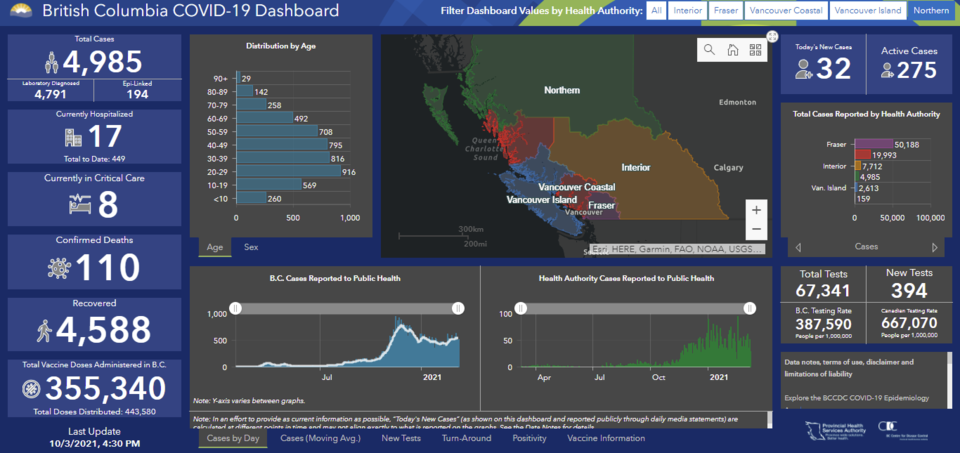Active cases of COVID-19 in Northern Health declined for a third day in a row but the virus also claimed one more life, according to B.C. Centre for Disease Control numbers issued Wednesday.
The death was the only one reported for the province and raised the total for Northern Health to 110 since the pandemic broke out. The count for B.C. now stands at 1,394.
Active cases in Northern Health stood at 275, down from 318 on Monday. Thirty-two new cases were reported which was below the seven-day moving average of 40.6 as of Tuesday.
As of Wednesday seventeen people hospitalized with the virus with eight of them in intensive care, down by one and two respectively from the day before.
The number of vaccinations in the region rose by 543 to 11,461 with 2,690 second doses, up by four.
On Wednesday, Westjet flight 3287 from Vancouver to Prince George on Feb. 28 was listed as the site of a possible exposure. Rows 14-20 were listed as affected.
And Hart Highlands Elementary School in Prince George may have been the site of a possible exposure on March 1, according to Northern Health.
"If your child’s school has been notified of an exposure, no action is required unless you are contacted by Public Health or are otherwise directed by school officials," the agency says in an online posting. "Public Health will contact you directly in case of any school exposure involving your child."
Further afield, officials announced Tuesday that one resident and one staff member tested positive for COVID-19 at Fleetwood Place, a long-term care facility in Surrey where 88 per cent of residents had been vaccinated.
The outbreak follows one declared Sunday at the Cottonwoods Care Centre in Kelowna, where 10 residents and two staff members tested positive despite 82 per cent of residents being immunized.
Health experts say COVID-19 outbreaks in two long-term care homes in British Columbia after most residents and staff were vaccinated are a reminder of the limits of immunization.
Provincial health officer Dr. Bonnie Henry has said vaccines are effective at preventing severe illness and death, but they don't necessarily stop all transmission, so masks and physical distancing remain important.
Horacio Bach, a University of British Columbia infectious diseases expert, says the first dose of vaccine generally provides protection after three weeks, but older people's immune systems may take longer to produce antibodies or may not produce them at all.
He also says it's possible that the cases are variants of concern, which vaccines may not be as effective against.
Bach adds it's important for the public to know that no vaccine prevents illness 100 per cent of the time, but the COVID-19 shots have been proven to be safe and very effective against serious illness and hospitalization.
- with files from The Canadian Press


